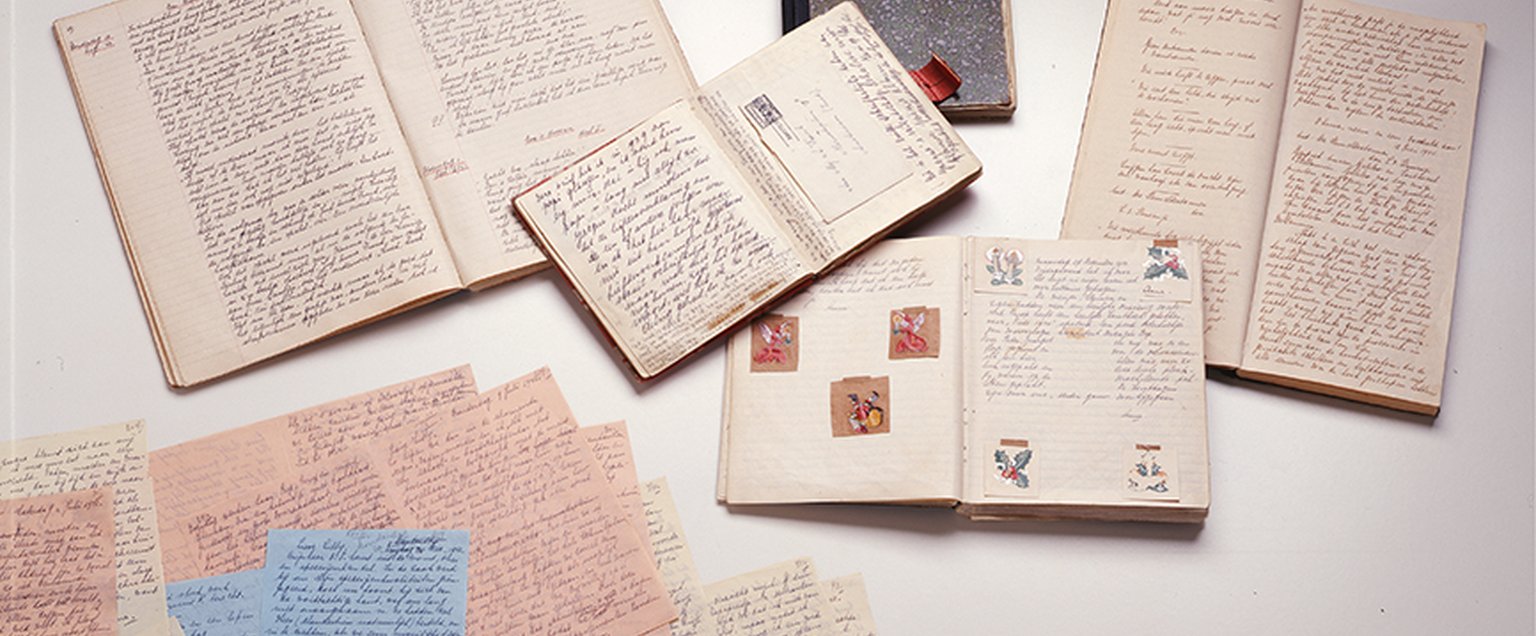According to the Anne Frank Fonds, the Anne Frank House and the Huygens Institute for the History of the Netherlands (an institute under the flag of the Royal Netherlands Academy of Arts and Sciences - KNAW) had infringed the copyright of the Fonds in the Netherlands with the online publication of the critical edition of the manuscripts of Anne Frank in September 2021. In the legal action the Fonds demanded that the online critical edition should be taken down. In its ruling the Amsterdam court states that the Anne Frank House and the Academy had not infringed the Fonds’ copyright in the Netherlands and that the critical edition can stay online.
Textual and historical research
The Huygens Institute for the History of the Netherlands and the Anne Frank House have carried out textual and historical research into the works of Anne Frank for over ten years. The results of this research have been published online in Belgium, and are only accessible from the countries (some 60 of them: the so-called ‘public domain countries’) where the copyright on all the works of Anne Frank has expired. According to the Amsterdam court, the Anne Frank House and the Academy have taken all necessary measures, including geo-blocking, to prevent publication of the online edition in the Netherlands. The court added: ‘The Fonds seems… to have lost sight of the fact that granting its demands in the manner proposed in this action would mean that all internet users in all public domain countries would be denied lawful access to the results of the academic research. That is far from proportional.’ The Anne Frank House and the KNAW are delighted that the results of this research will remain freely accessible in so many countries.
Importance of academic freedom
The court’s ruling confirms the importance of academic freedom. It is not only a welcome boost for the online critical edition, but for the entire heritage sector. Access to cultural heritage is of vital importance for a society that wants to be aware of its history. The Anne Frank House sees it as its task, and that of all other museums and archives in the Netherlands, to share its knowledge and its collections as widely as possible with the public and the academic world. Of course copyright must be respected in this, but what is in the public domain must also remain publicly accessible. In this court case the Anne Frank Fonds attempted, for commercial reasons, to keep the work of Anne Frank out of the public domain, because of research that it later initiated itself. The court did not accept this: of course the Anne Frank Fonds must be able to carry out its own research, but that must not impede other research. The significance of this ruling therefore goes beyond the online critical edition; it confirms the importance of academic freedom and free access to archives and collections in the entire heritage sector.
Association for Research and Access to Historical Texts
The online critical edition of the manuscripts of Anne Frank is published in Belgium by the Association for Research and Access to Historical Texts (VOOHT). The aim of this association is to publish the results of academic research in a public domain country: in Belgium – unlike the Netherlands – the copyright on the manuscripts of Anne Frank has expired. The VOOHT is a non-profit organisation.
Diaries of Anne Frank are world heritage
The Anne Frank House and the KNAW believe it is important to share their knowledge about Anne Frank with as many people as possible. The manuscripts of Anne Frank form a part of UNESCO's Memory of the World Register; the World Heritage List for documents. After ten years of research, for the first time all the original manuscripts, with which Anne Frank hoped to become a famous writer, have been shown in full online and made accessible within their historical context. The online critical edition of the manuscripts of Anne Frank has no commercial purpose, and is freely accessible in all countries where the copyright allows this.
